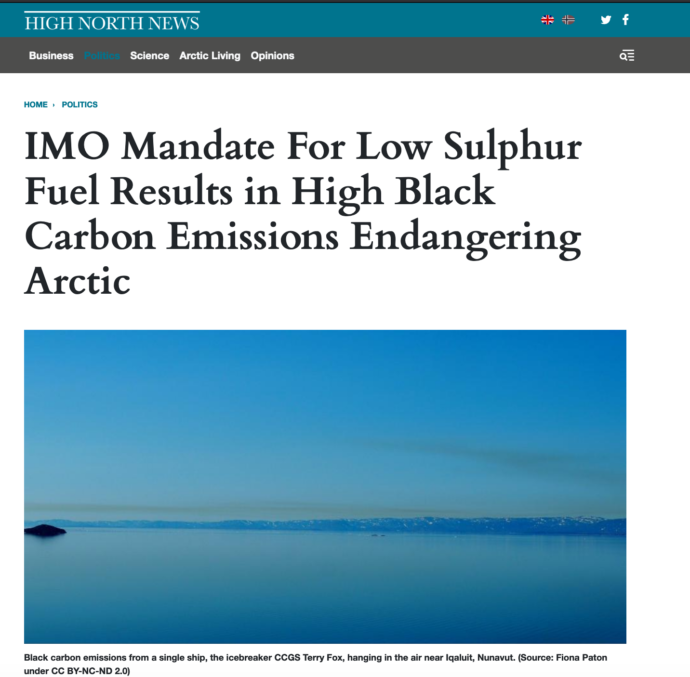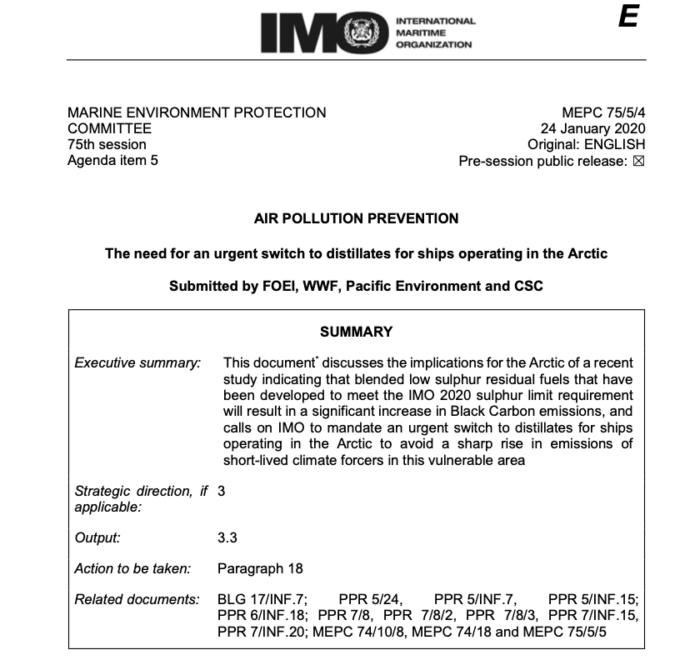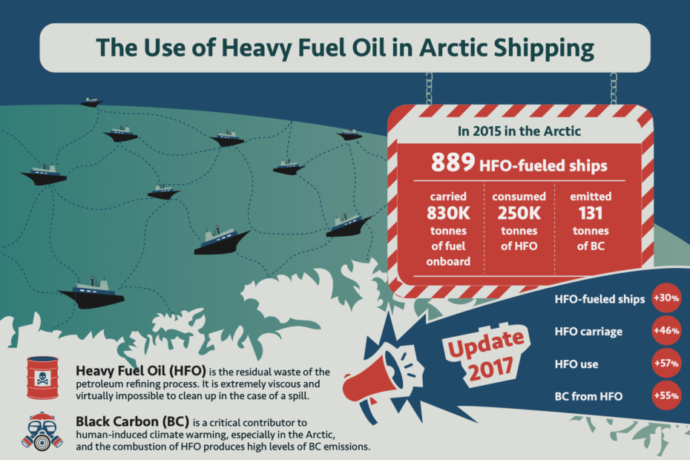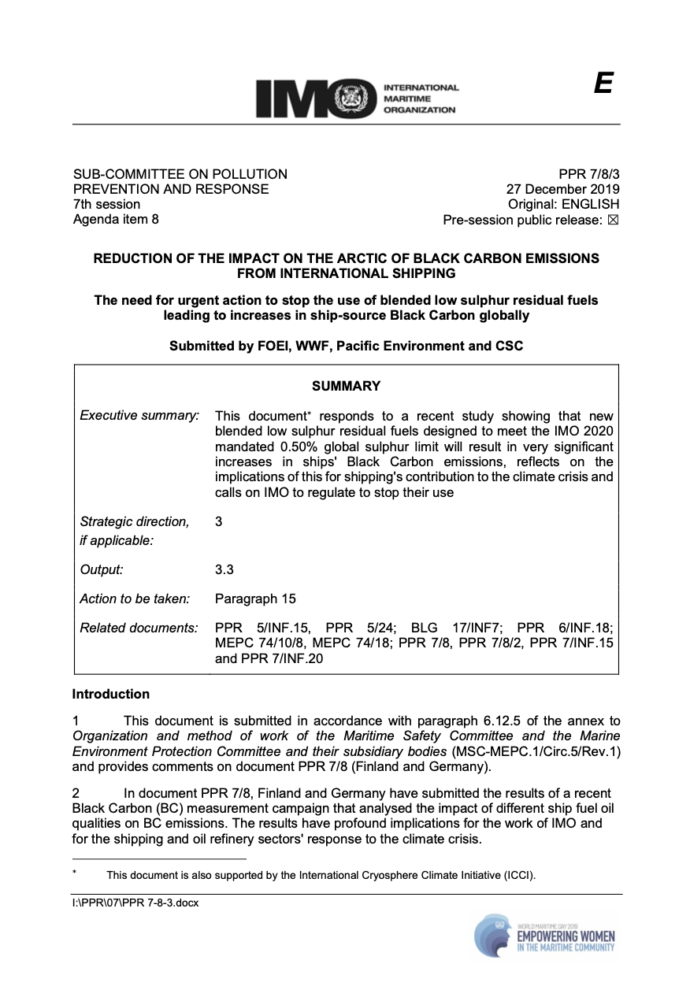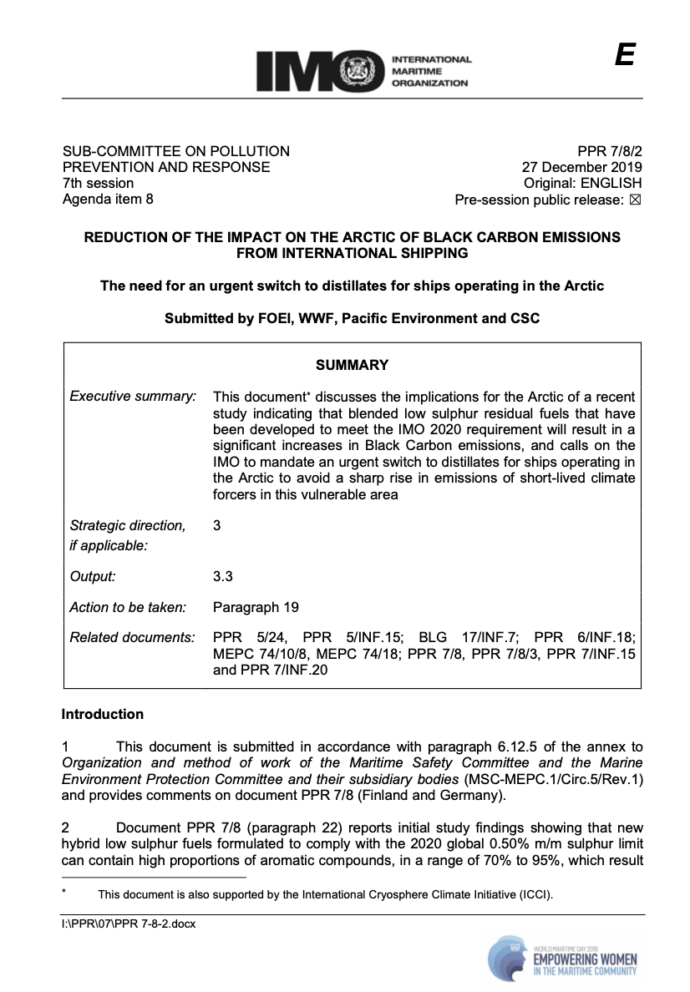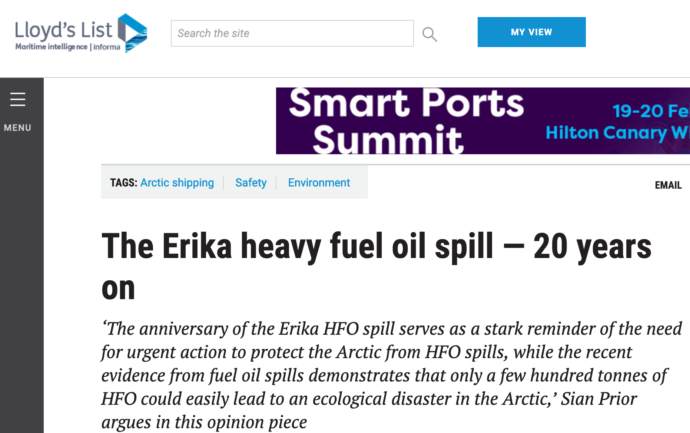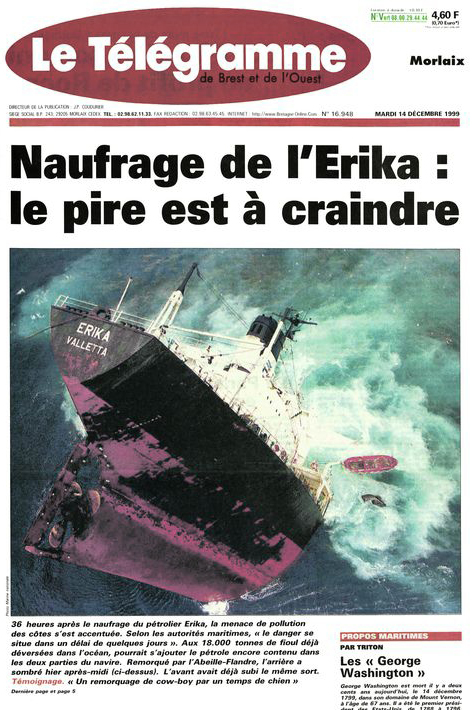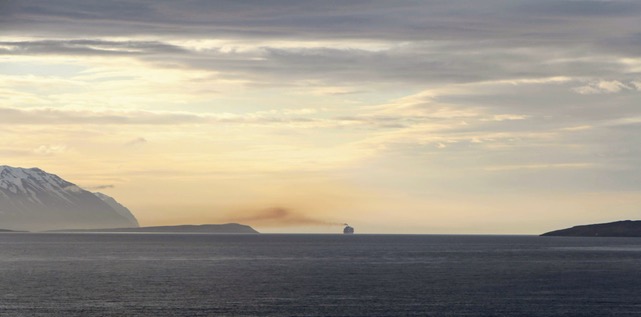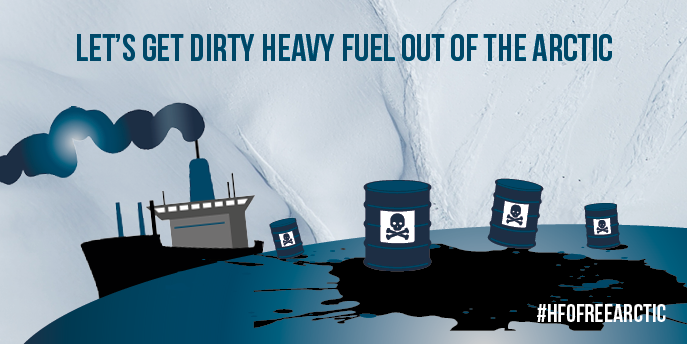“Iceland’s new regulation to limit exhaust emissions with high levels of sulphur from shipping in Iceland’s waters is a positive step forward by Environment Ministers Guðmundur Ingi Guðbrandsson, but fails to address emissions of black carbon, which accelerates Arctic sea ice melt, and in turn accelerate the effects of human-induced climate change,” said Árni Finnsson, of the Iceland Nature Conservation Association. “The only viable step forward is for Iceland to completely ban the use and carriage of heavy fuel oil from its territorial waters, ahead of an International Maritime Organization ban currently in development to ban its use and carriage in the Arctic”.

